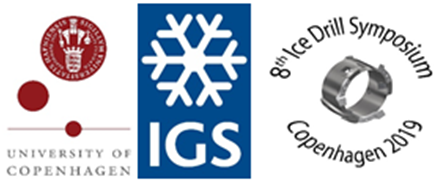Speaker
Description
As one of the effective methods of rapid ice drill, thermal drilling is widely used to study ice sheets and glaciers. After drilling, the refreezing of the meltwater in the borehole is the key factor hindering down-the-hole observations. The temperature distribution in ice around thermally drilled borehole has a direct impact on the closure rate of the borehole. In order to determine the temperature distribution around the borehole and the ice boundary affected by the thermal drilling, a temperature field detection testing stand using hot-point drill with constant bit load was designed. The temperature distribution around the borehole during hot-point drilling process and the closure process in ice with temperature in the range from -10 to -30 ℃ were measured. The borehole was drilled by different diameters drill bits with 1-2 kW power. The results showed that the distance from the temperature changing boundary to the borehole is about 2-3 times of the borehole radius during thermal drilling, and after drilling, the influence of melting water on the temperature changing boundary is about 10 times of the ice hole radius.

